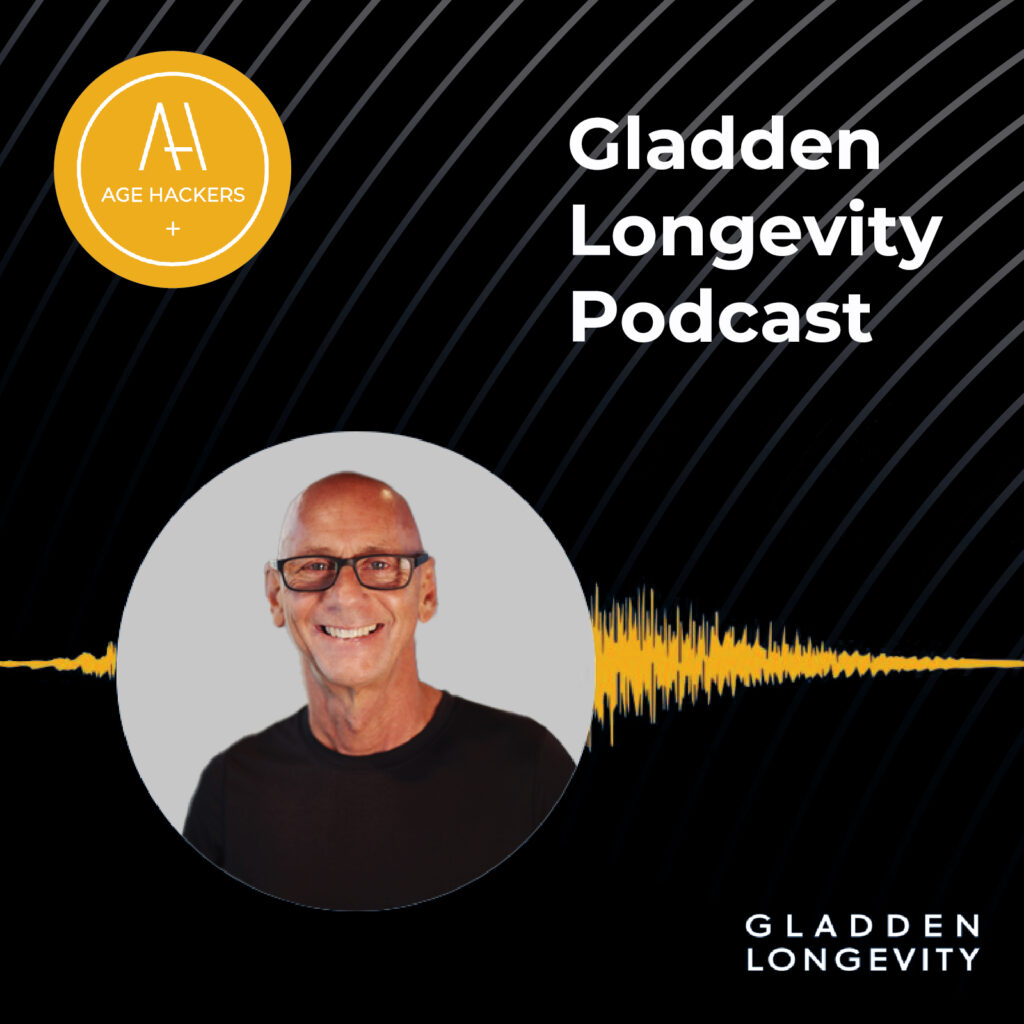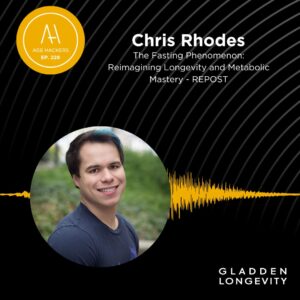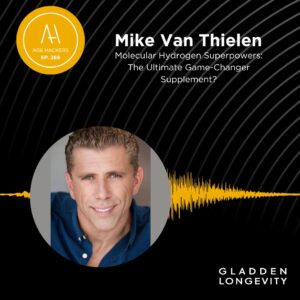Dr. Gregory Fahy is a cryobiologist and biogerontologist. He’s credited with a many of the breakthroughs in cryopreservation, and he has been working on finding new ways to use already-approved drugs.
Fahy talks about his work with human growth hormone (HGH) and shares the highlights of the results of his first human trials with it. He talks about what happens around age 62-65 for most people that rapidly increases chances of death.
Fahy urges people interested in longevity to pay attention to what is on the cutting edge of medicine, he stresses the importance of nicotinamide adenine dinucleotide (NAD) in staying youthful, and he believes there is a profound connection between the immune system and aging.
Also on the podcast, Mark explains what he means when he says Americans are eating like we’re on death row.
Dr. Gladden expands on HGH and considers some of the drawbacks and complications that could occur when it is used as treatment.
In This Week in Longevity Science, they discuss peptides as a form of treatment, including how they function in the body and their promising regenerative properties. Research is being done to see how well peptides could work for highly customized medicine, not only for a specific disease but the exact disease within the individual.
Ask yourself, “How am I going to learn more about this cutting-edge science in order to change the trajectory of my aging?”
Listen to this episode to learn about making a hundred the new thirty, living beyond 120, and Living Young for a Lifetime!
About the Guest:
Gregory M. Fahy, Ph.D.
Dr. Fahy earned his B.S. from the University of California at Irvine in 1972 and his Ph.D. from the Medical College of Georgia in 1977 for work on basic aspects of cryobiology. He spent the next 18 years developing methods for preserving whole organs at cryogenic temperatures at the American Red Cross in Maryland. In 1980, he conceived of preserving organs by vitrification. He published the first proof of principle of this concept in Nature in 1985 using mouse embryos as a model system, an event that led to the wide use of vitrification in academic and commercial animal husbandry as well as in human assisted reproduction.
In 1995, he won the Grand Prize for Medicine from INPEX for his invention of the first effective computer-operated equipment for perfusing organs with cryoprotective agents. The same year, he left the Red Cross to become Chief Scientist of two biotechnology companies and the Head of the Tissue Cryopreservation Section of the Transfusion and Cryopreservation Research Program at the Naval Medical Research Institute in Bethesda, Maryland. In 1998, he became the Chief Scientific Officer and Vice President of 21st Century Medicine, where he invented several new principles in cryopreservation that have been extraordinarily effective in practical applications ranging from tissues to whole organs.
Dr. Fahy’s efforts have recently raised the question of whether human suspended animation might be an attainable goal that could allow the human species to survive in deep time as a result of enabling migration from the earth to other habitats in the cosmos.
Dr. Fahy is a sought-after speaker and problem-solver. He is on the Board of Directors of several organizations concerned with cryopreservation or aging, serves on the Editorial Board of Rejuvenation Research, and has served as a reviewer for numerous journals and granting bodies. He has over 20 patents in fields related to cryopreservation, aging, transplantation, metabolic protection, and the reversal of autoimmunity and immunosenescence, and has many publications in the fields of cryobiology, aging, and nanotechnology.
He currently serves as Director for Intervene Immune, Inc. Learn more about the projects they are working on and how to become a part of their clinical trials at http://interveneimmune.com/.







